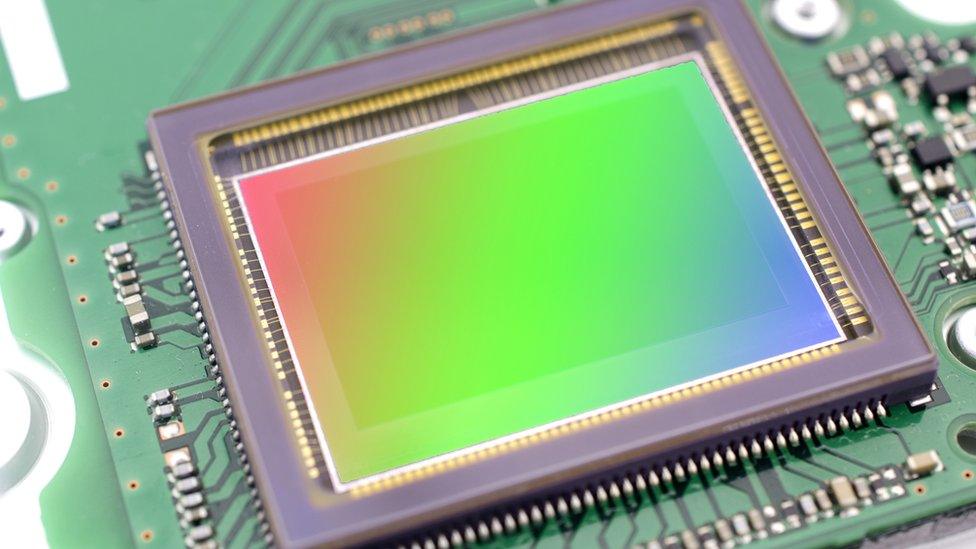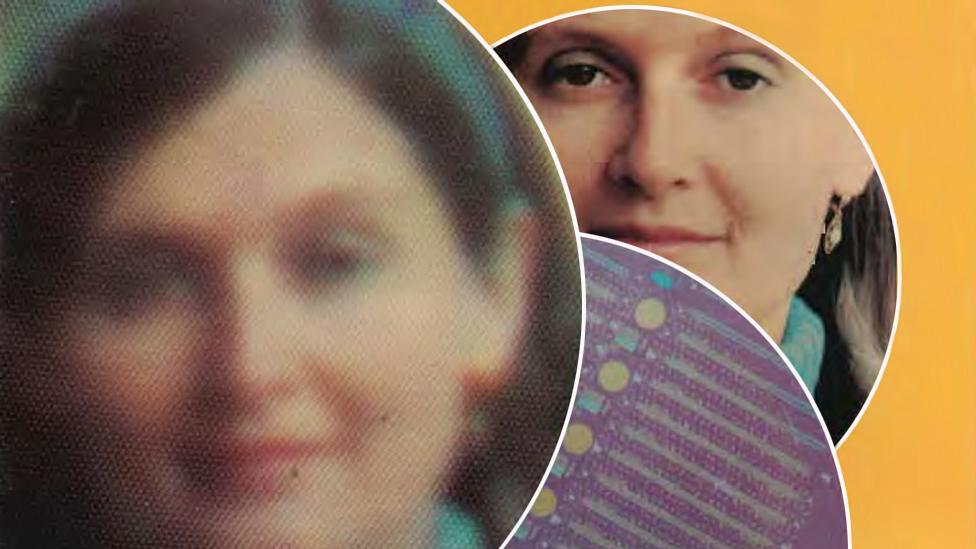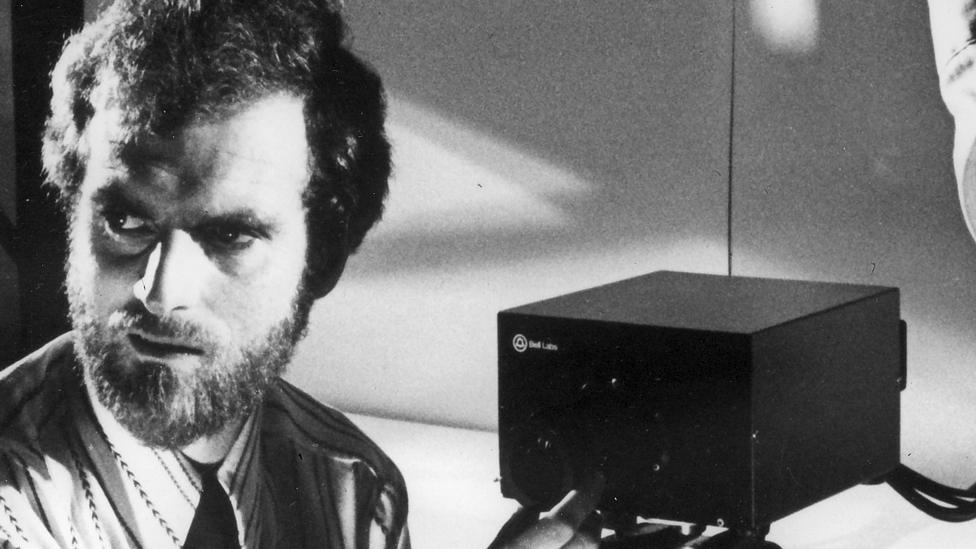£1m Queen Elizabeth Prize: Digital camera tech lauded
- Published

CMOS is now the technology of choice in smartphones, pocket cameras, DSLRs and webcams
The inventors of digital cameras have won the highest international engineering prize.
This year's £1m Queen Elizabeth Prize, external recognises the development of the technologies that turn light into digital signals.
The Royal Academy of Engineering judging panel said the inventors' work had "revolutionised" the world.
Although one of the winners told the BBC he was "frustrated" to see people taking selfies with his invention.
The award is inspired by and modelled on the Nobel Prizes for science.
This year it is shared by British-born Dr Michael Tompsett, Prof Nobukazu Teranishi from Japan, and Prof Eric Fossum and George Smith from the US.

The first colour digital photo of Margaret Tompsett. Taken in 1972, it appears blurry compared with one captured on film in the background
Their engineering achievements span three decades and have helped to transform medical treatments, science and entertainment. Without their work Skyping, selfies, computer games and streamed digital films would not be possible.
The imaging technologies have also helped capture stunning views of planets and distant stars and galaxies.
The revolution began with the charge-coupled device (CCD) at Bell Labs in New Jersey.
George Smith and Willard Boyle (now deceased) first had the idea for this sensor in 1969 - but for use as a computer memory circuit. It was their colleague, Dr Tompsett, who saw its potential for taking pictures.
Up until that point, images were captured on film and people had to wait several days to see them while they were processed in laboratories.
The first ever colour digital photograph was of Dr Tompsett's wife, Margaret, and appeared on the cover of Electronics magazine. It became the face that launched a trillion digital images.

Dr Mike Tompsett with the world's first digital colour camera
"We had no idea that she would be the first digital cover girl," he joked.
Asked if he was proud that his development gave rise to a technology that is so ubiquitous, Dr Tompsett told BBC News he had some mixed feelings. Yes, he felt some pride, but he "also felt the opposite".
"I feel frustrated by all these people who have cameras, taking pictures of everything in sight - and selfies. You are walking along and a selfie stick suddenly appears."
And he added wryly: "I sometimes think whoever invented this technology should be dealt with."

We now live in the age of the selfie
Prof Teranishi invented the pinned photodiode, or PPD, while at the NEC Corporation in Japan in 1980. A PPD is a more efficient photodiode which produces much crisper images.
"I'm incredibly happy and proud to have won the Queen Elizabeth Prize for Engineering," he said.
"Even though I am now called a professor, I always consider myself a practising engineer first. Given how many technologies and engineering disciplines there are in the world, I feel very fortunate that image sensors have been recognised by the Queen Elizabeth Prize."
The baton was then passed to Prof Fossum, who in the 1990s was working with the US space agency's Jet Propulsion Lab. His aim was to miniaturise digital cameras so the space agency could reduce the payload of its spacecraft. He succeeded and his CMOS device, also known as "camera on a chip" technology, has now become the basis of modern digital cameras.
A study of industry data by Prof Fossum suggests that 100 digital cameras are made every second and a billion photos are uploaded each day.
"I had no idea of the impact it would have," he told BBC News. "I thought it would be useful for many things, but the impact is just amazing an it astonishes me on a daily basis."

Dr Mike Tompsett saw the potential of CCD imaging
Follow Pallab on Twitter, external
- Published18 March 2013

- Published3 February 2015
